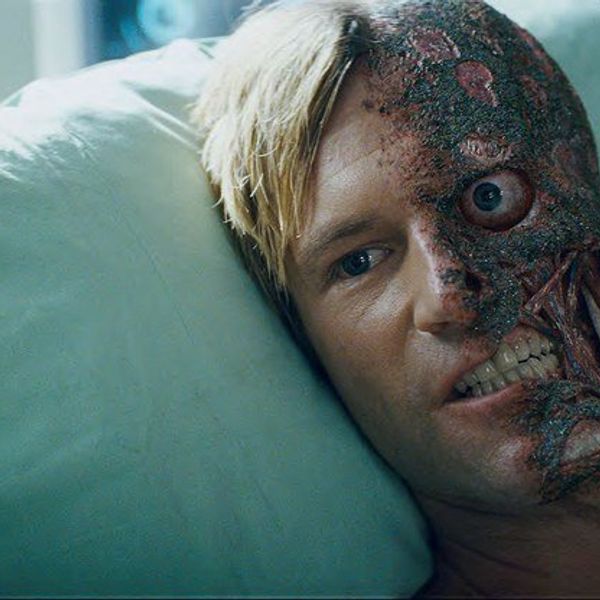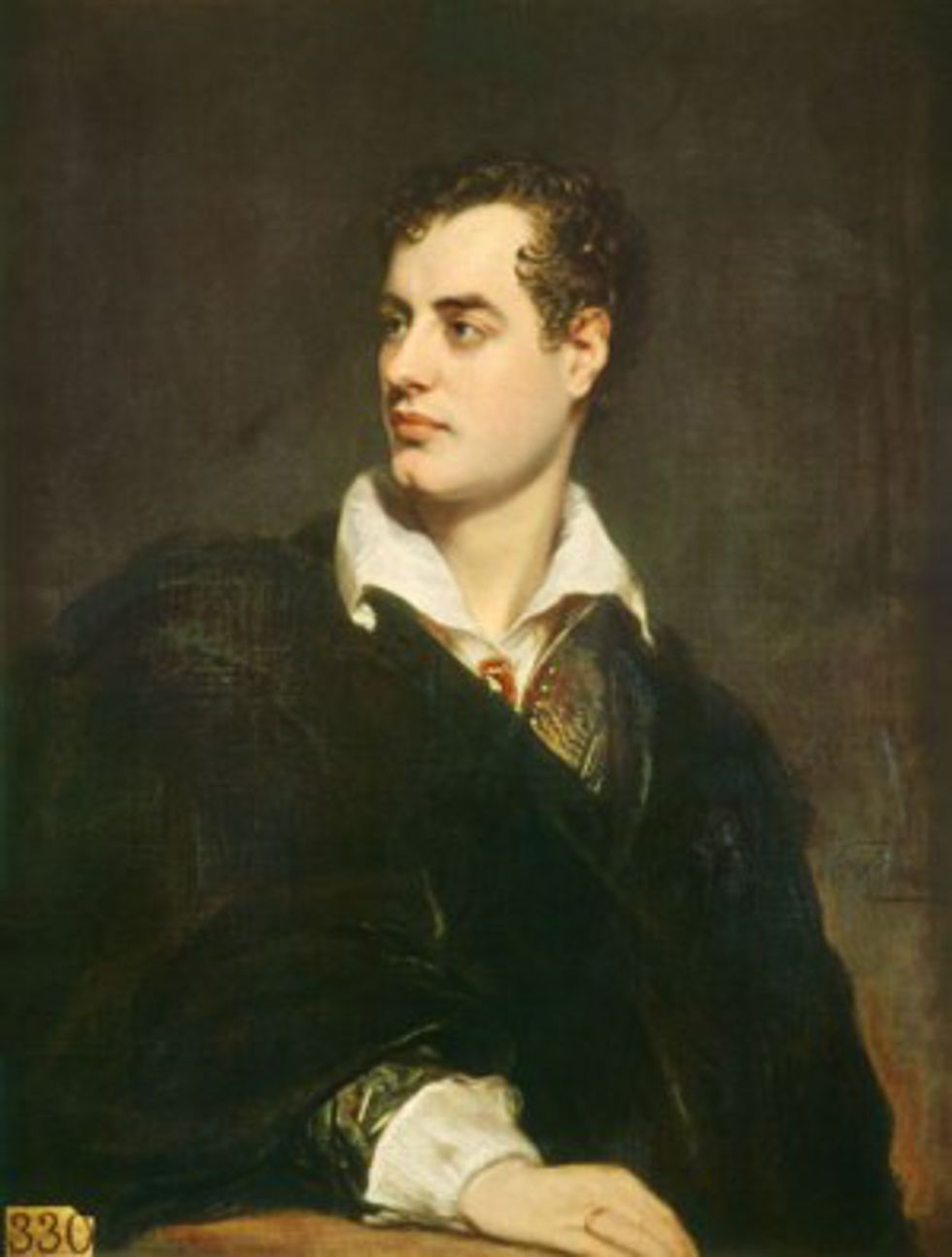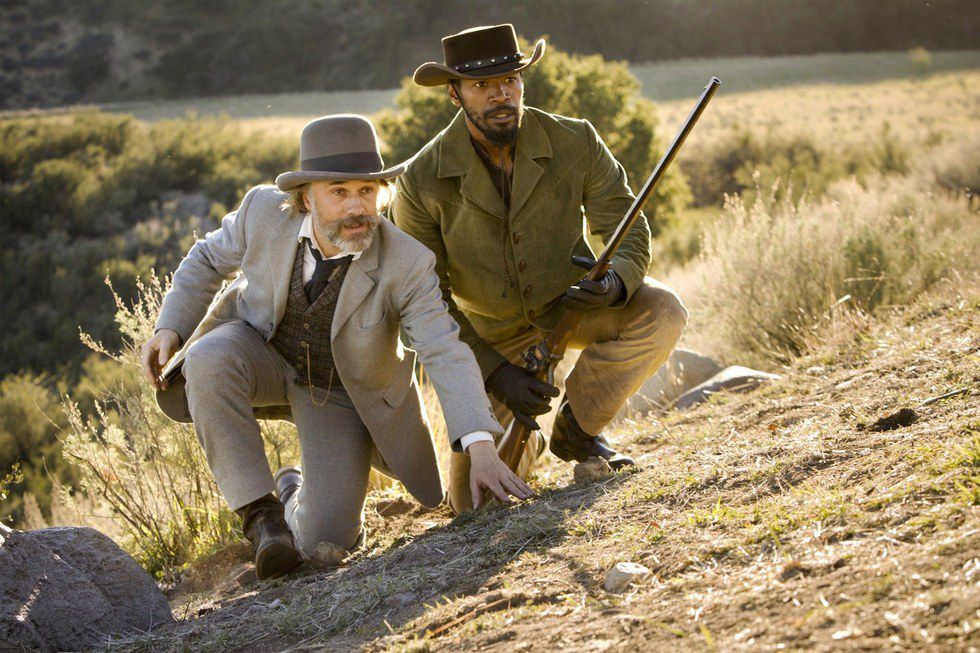You know him - we all do. He, like all literary tropes, is known by a variety of familiar names (Edward Cullen, Tony Stark, Tyrion Lannister, and many more), but each of his various incarnations is most recognizable by the ubiquitous character traits he's attached to in each of his respective portrayals. He is the Byronic hero, and readers have been pulled to him since he flitted across the page in Byron's own original works, and since, in characters like Dorian Gray, Sherlock Holmes, Mr. Darcy, and Jay Gatsby.
So, what do all these characters have in common? Based on the brooding, dark, and serially misunderstood Lord Byron from whom he takes his name, the Byronic hero personifies those traits with which Byron himself painted his own characters, from Childe Harold to Don Juan: broodiness, moodiness, cynicism. In essence, he is idealized, but flawed. He has a dark, generally mysterious past and a certain, powerful kind of attractiveness the women the hero surrounds himself with are inexorably drawn to. The Byronic hero is traditionally handsome, seductive, sensual, and he is often known for his sexual exploits. He flouts authority; he is zealously dedicated to the pursuit of justice over authority. He tends to be reckless, even suicidal - he presents himself as tortured and misunderstood, in contrast to his own vanity and arrogance. He's usually educated, high-class, and a little intimidating - such is his draw.
Besides their shared personality traits, most Byronic heroes also share a tendency for vices (think Tony Stark's alcoholism, Tyrion Lannister's sexual exploits, and Dorian Gray's opiate dependency), a penchant for womanizing (a trait Byron himself was most famous for), and a habit for melodramatics - Harry Potter's Sirius Black and Severus Snape are notable examples of the melodrama intrinsic to both Byron himself and the character trope he's most famous for.
It is not difficult to see why the Byronic hero is so named; Byron, born George Gordon, Lord Byron in 1788, lived a life not unlike that of his semi-autobiographical character Childe Harold, from Childe Harold's Pilgrimage. He lived the tortured yet scandalous life of the romantic poet, having several children by various women (including, allegedly, his own half-sister), fretting over his weight and appearance (historians speculate that Byron likely suffered from an eating disorder, and he was known to keep his hair in curling papers at night), and displaying the broodiness, dramatics, and mood swings for which the Byronic hero is, perhaps, most well-known (though it should be noted that Byron was posthumously diagnosed with manic depression).
He famously commissioned a marble funerary statue of his beloved dog, despite having a heavy burden of debt. He even ended his life in self-imposed exile in Greece, fighting in the Grecian civil war; he noted that his motivation for this strange (and, fittingly, melodramatic) act was that he nursed a desire to emulate the old emperor Napoleon, for whom he had always held a fervent admiration.
More recently, particularly in film, the Byronic hero archetype is also deeply intertwined with one of entertainment's most irritating tropes - the White Savior Complex. Think Schultz from Django Unchained, or Atticus Finch from To Kill A Mockingbird. The White Savior is portrayed as a messianic figure who comes to save people of color from their plight. Famous examples of this trope appear in The Help, Glory, and even Avatar (the protagonist of which could likely be considered a Byronic figure). As trite as the Byronic hero can often be, the addition of the White Savior Complex to his character makes him even more so, and as film and television have evolved, so too has the Byronic hero, and character add-ons like White Savior-ism are, perhaps, a consequence of time.
Most interesting (and less controversial), perhaps, of the modern renditions of the Byronic hero is not a hero at all, but a heroine. Kill Bill's The Bride and Frozen's Elsa are notable examples. The character of the Countess in American Horror Story's fifth season can even be considered Byronic in some ways. The female counterpart to the Byronic hero is little seen and understood; most of the characteristics so intrinsic to our conventional idea of the Byronic hero are, at least traditionally, male. She, like the traditional trope, is brooding, dark, and mysterious. She holds an allure that those around her find irresistible, and she dwells often on her tragic, tortured past. It is, therefore, refreshing to find that Byron's famous trope is now applied to female characters, thus deepening the pool of feminine archetypes in media. Though the Byronic character is no less trite when applied to a female form, it is far more interesting to see her in place of the stale tropes so often applied to female characters; the manic pixie dream girl, the damsel in distress, etc.
So, what does it say about us, that one of our collective favorite and most enduring characters is so idealized, yet so flawed? The answer, likely, is more positive than negative; in short, we see ourselves in the Byronic hero. We see our flaws, and in his (or her) success, we see what we hope is our ultimate destiny to overcome them.






















